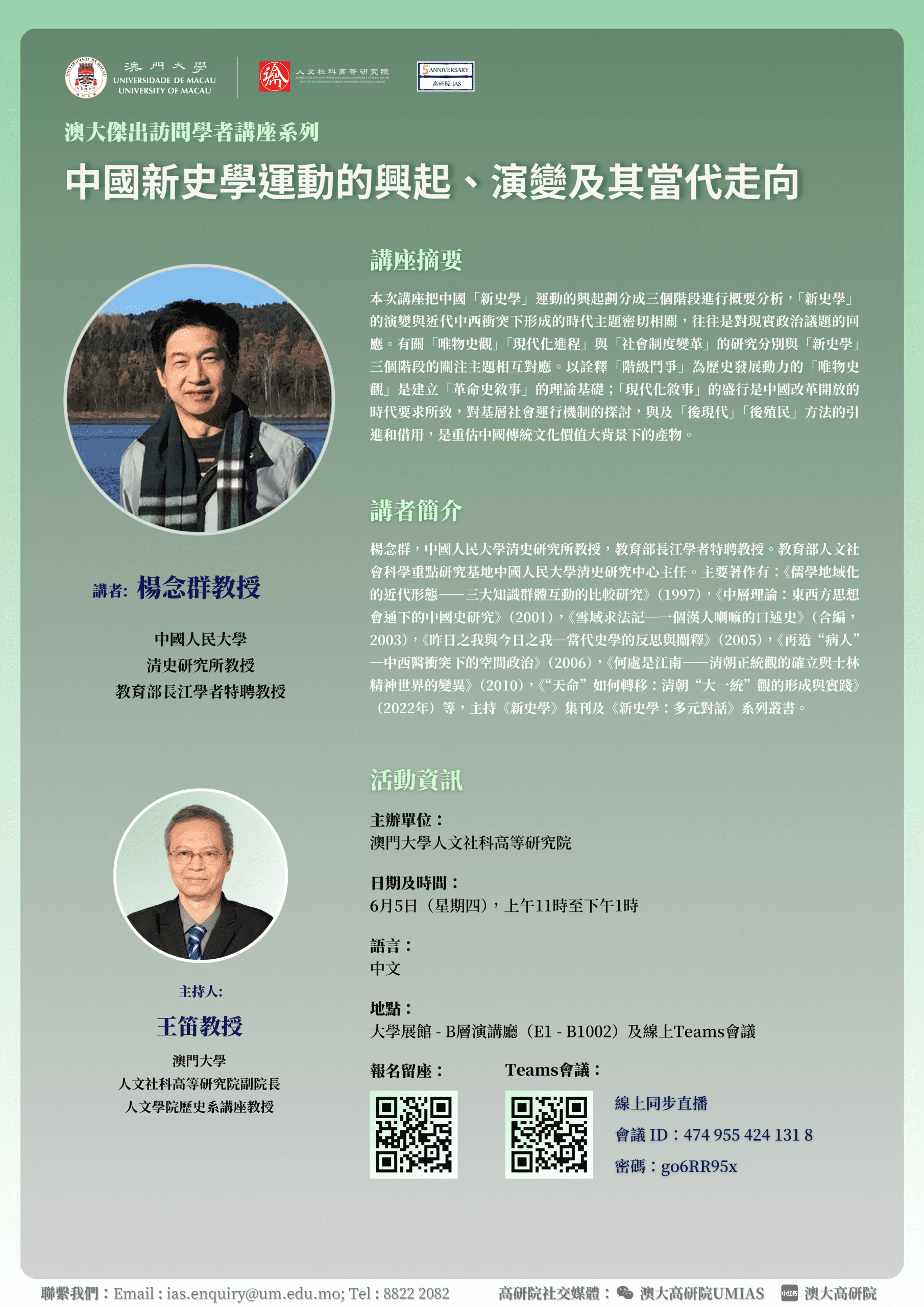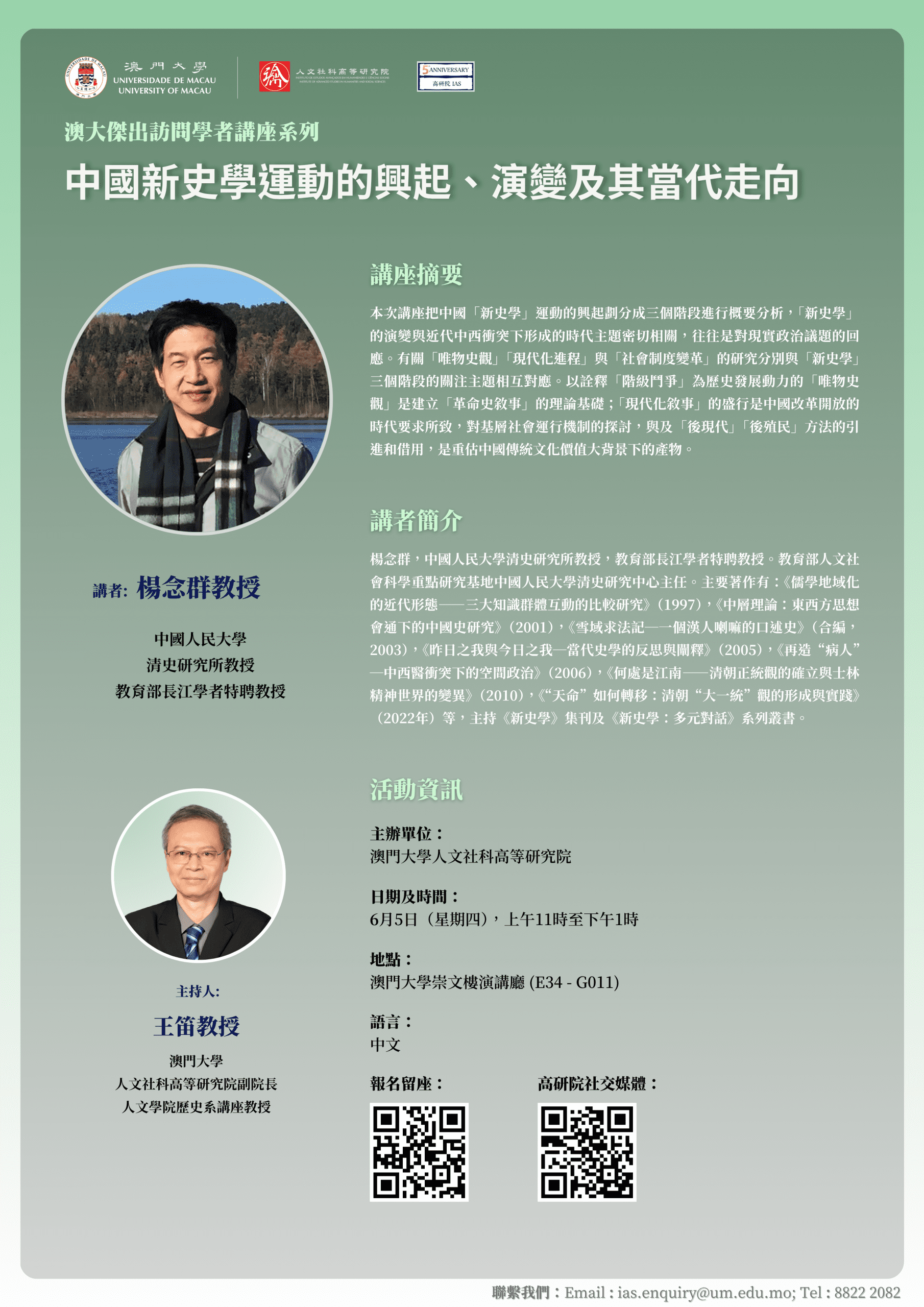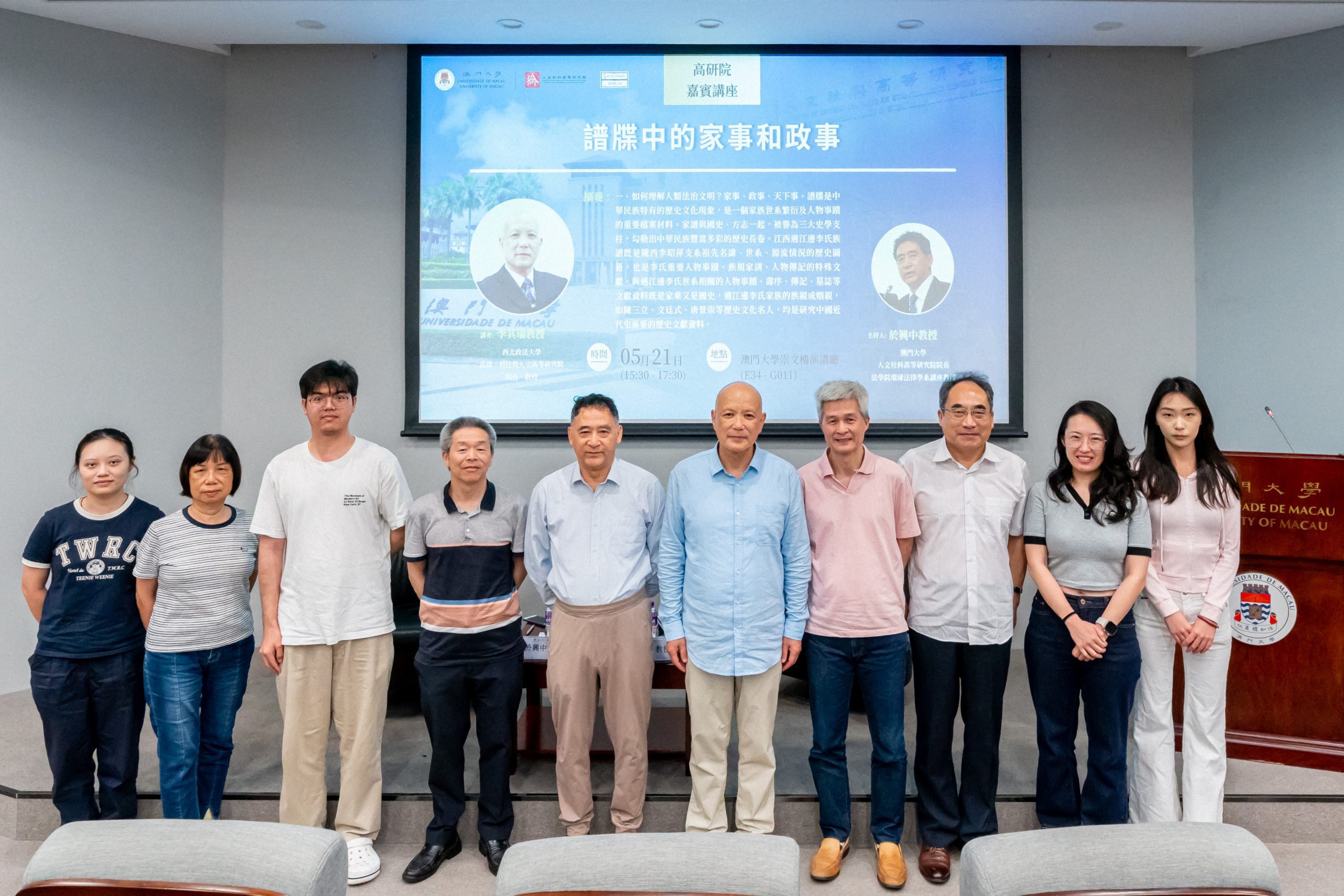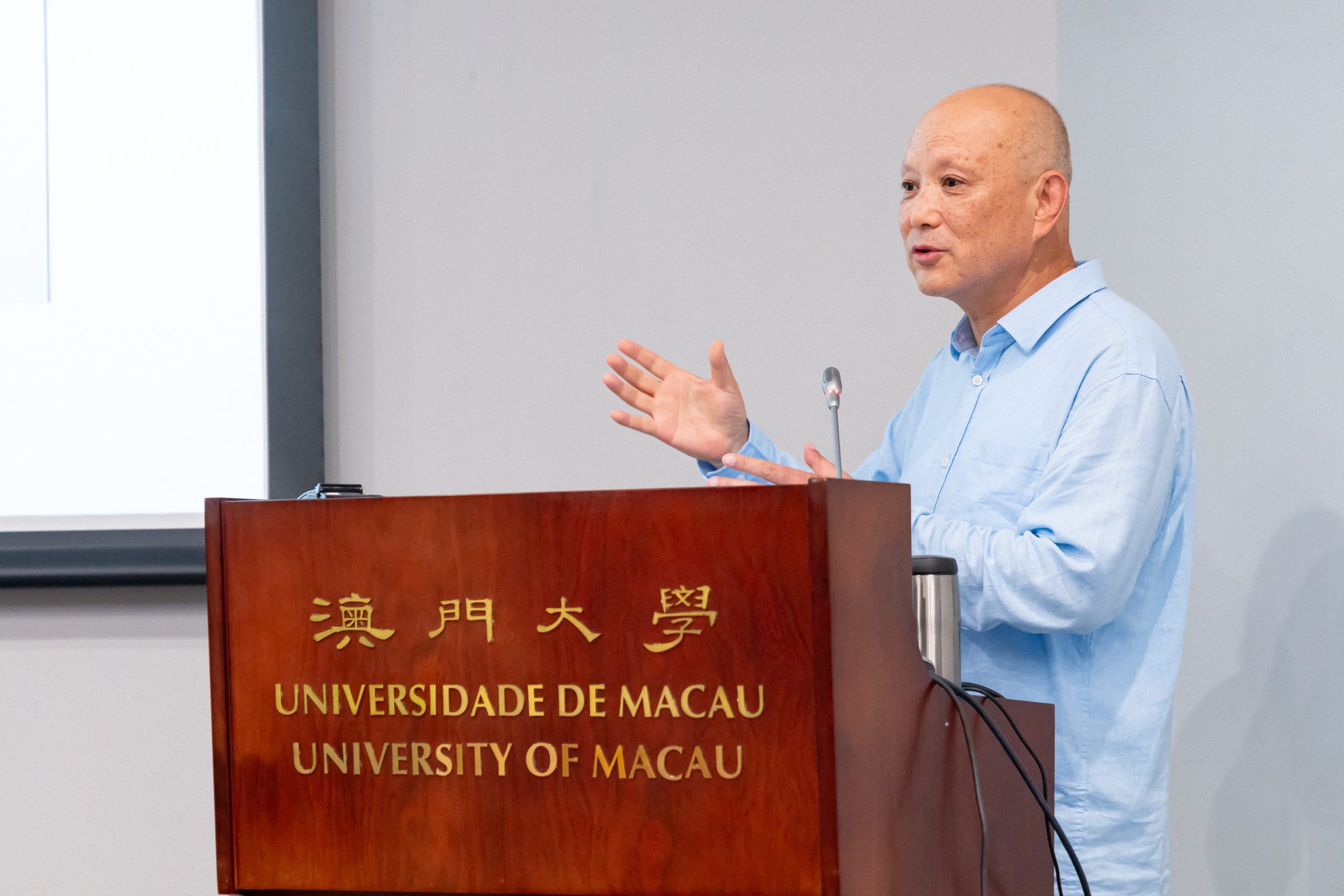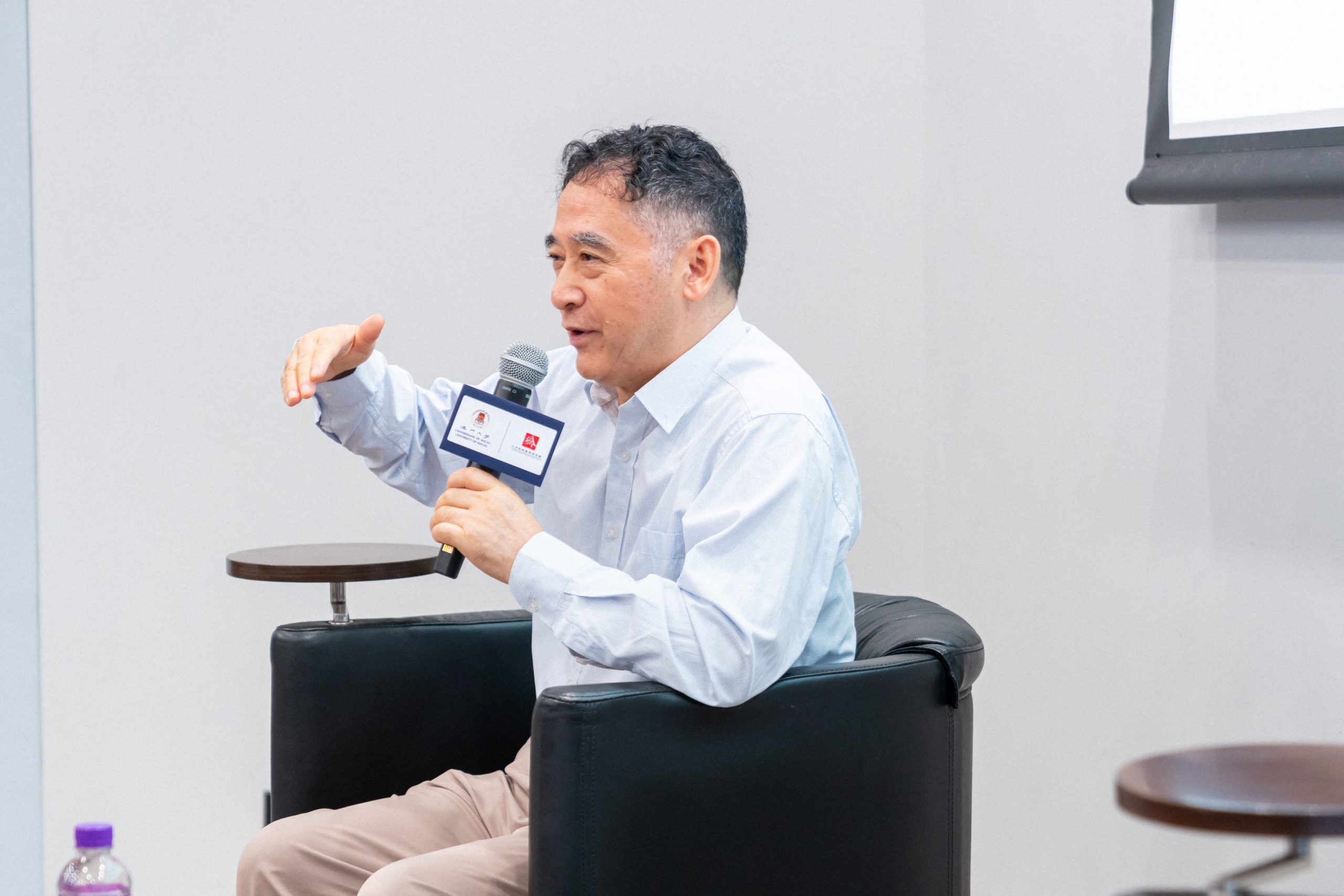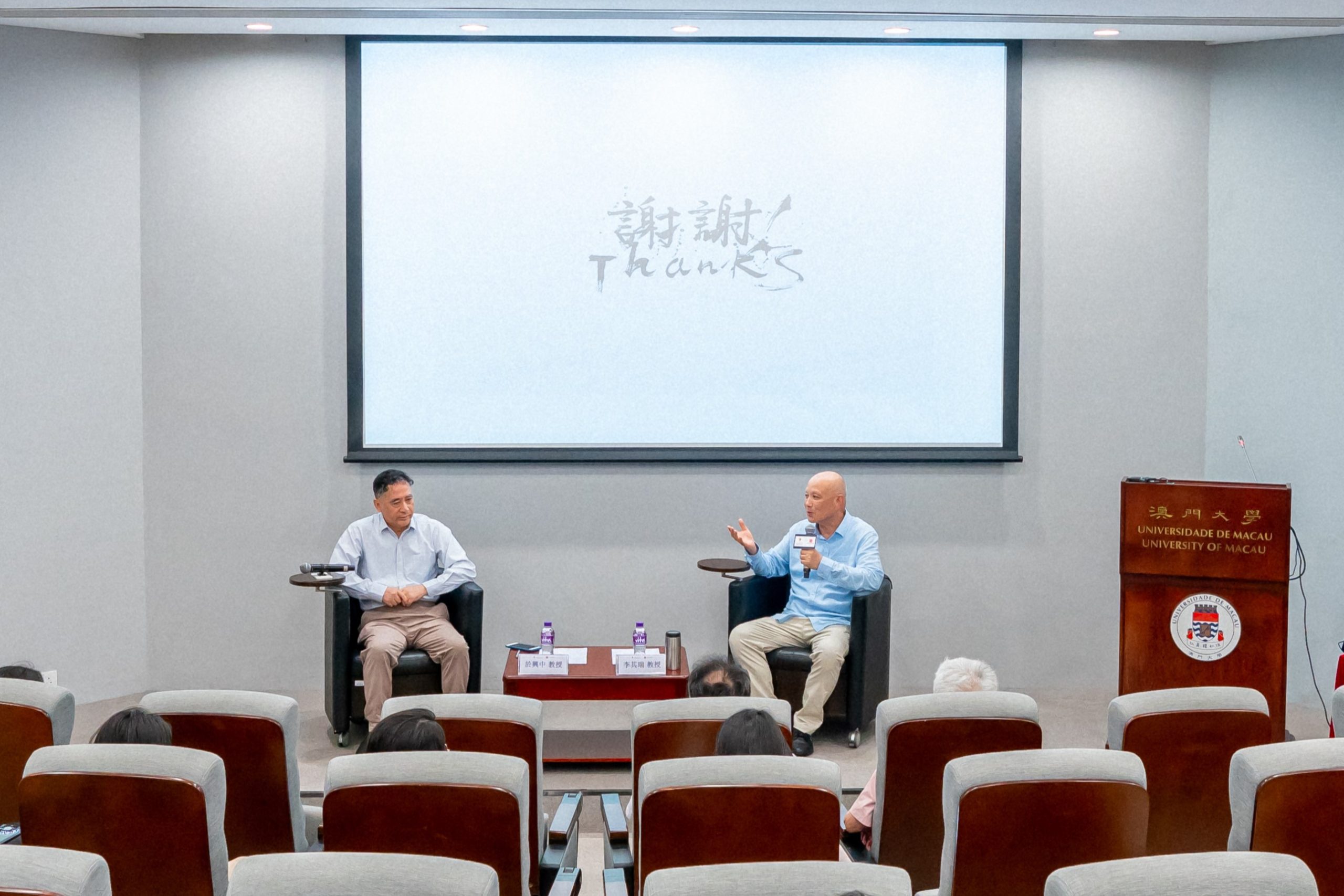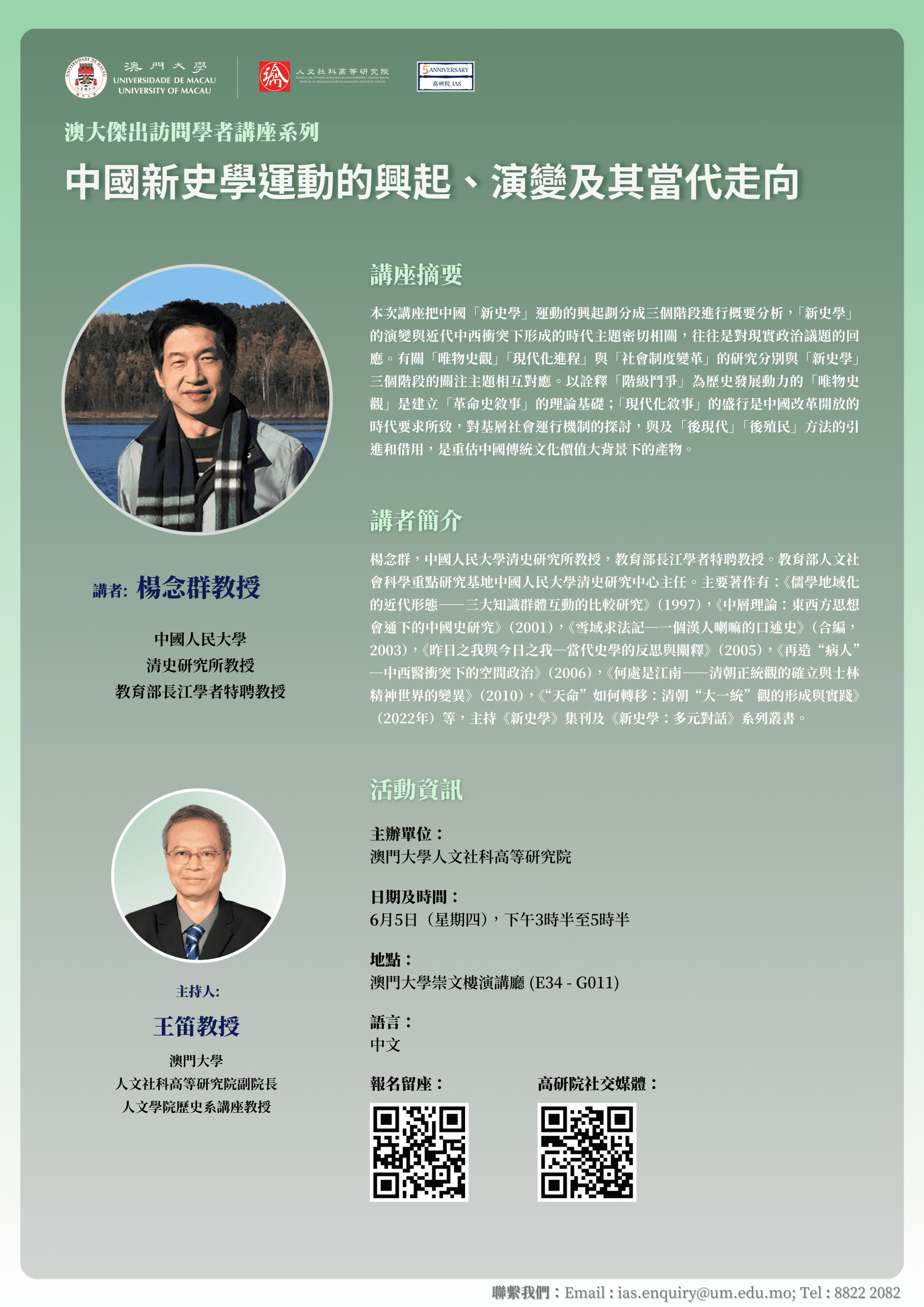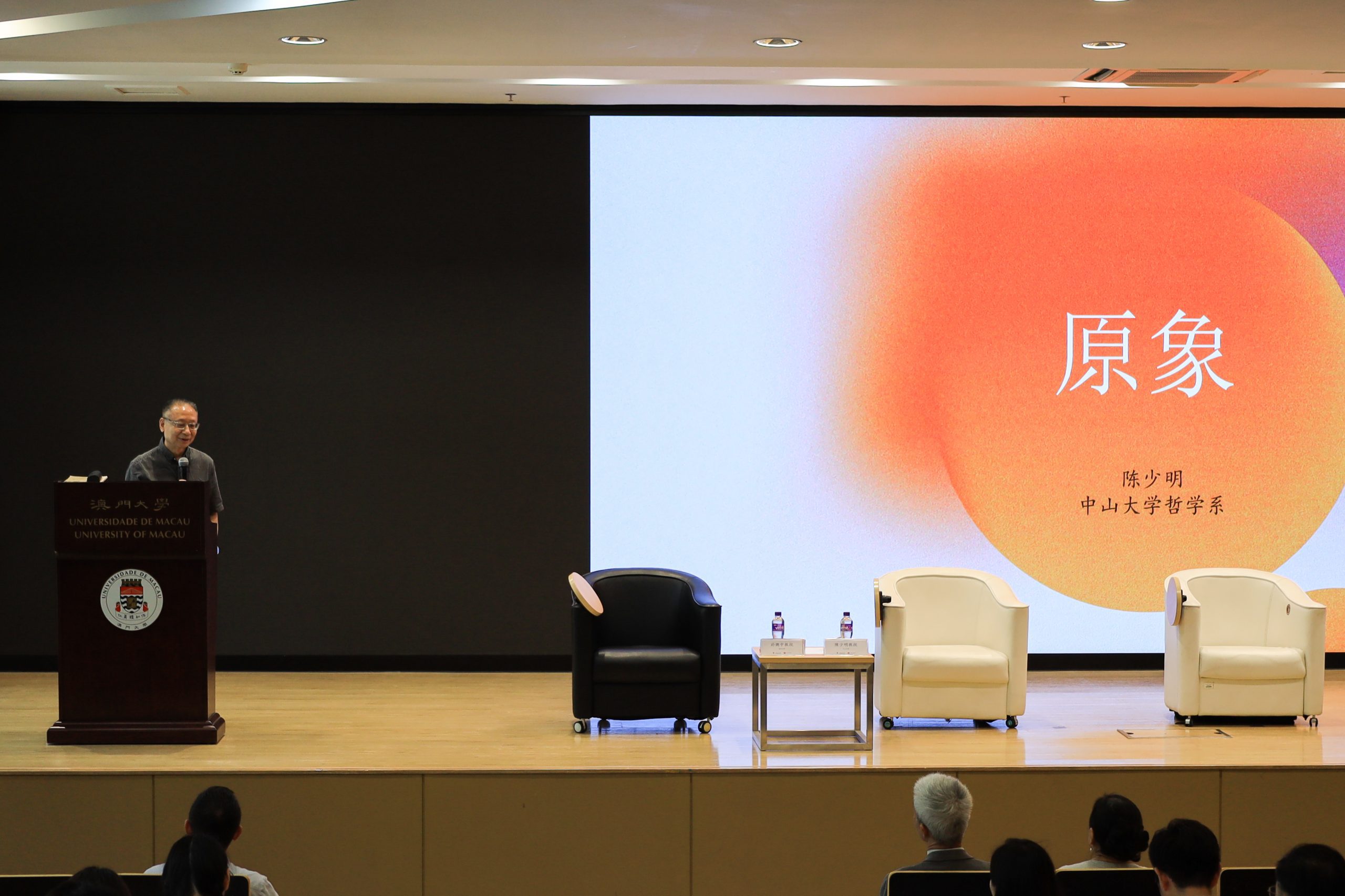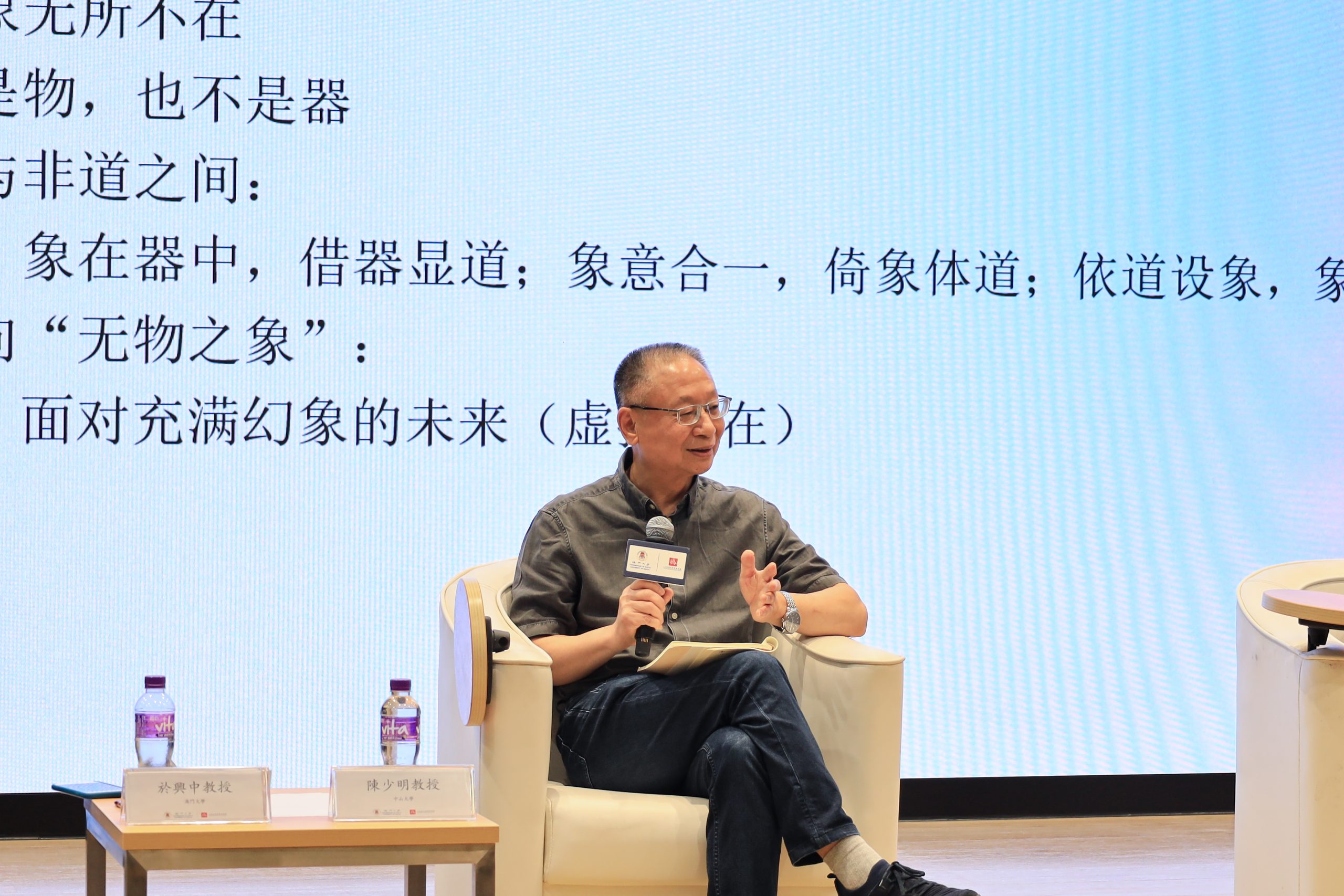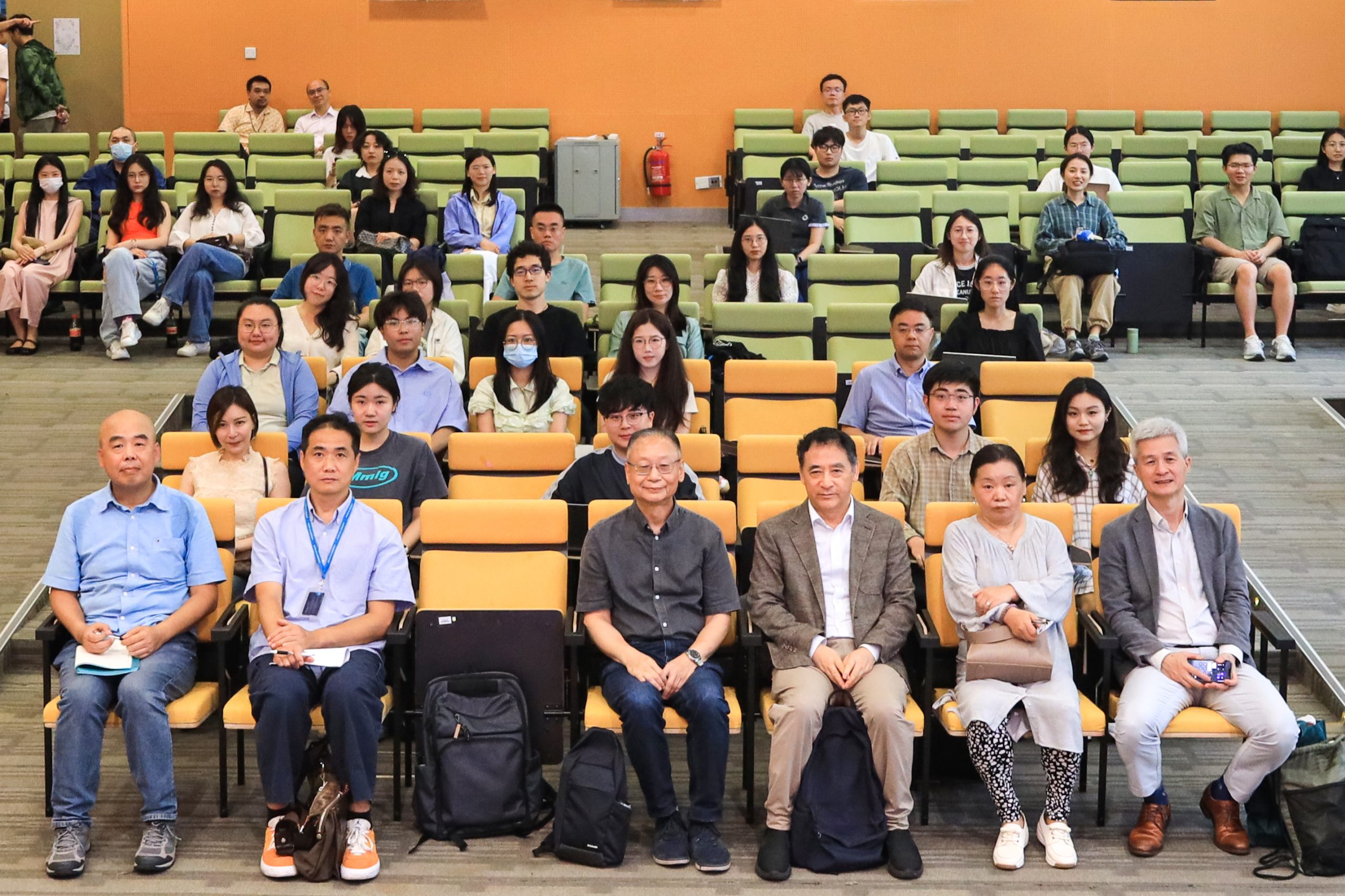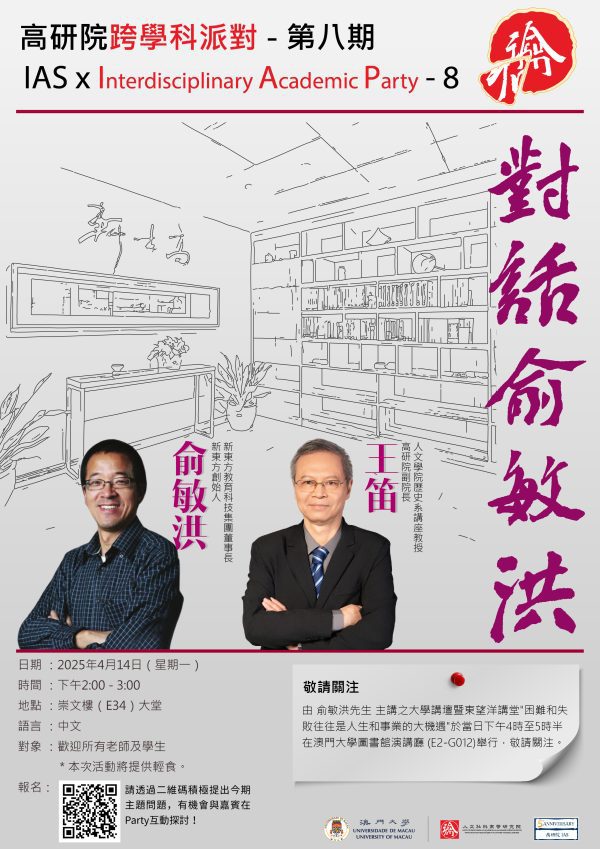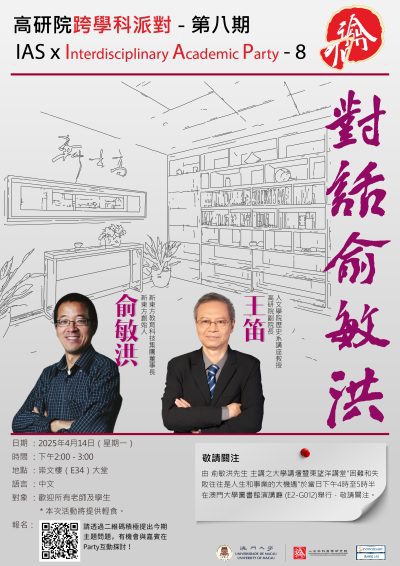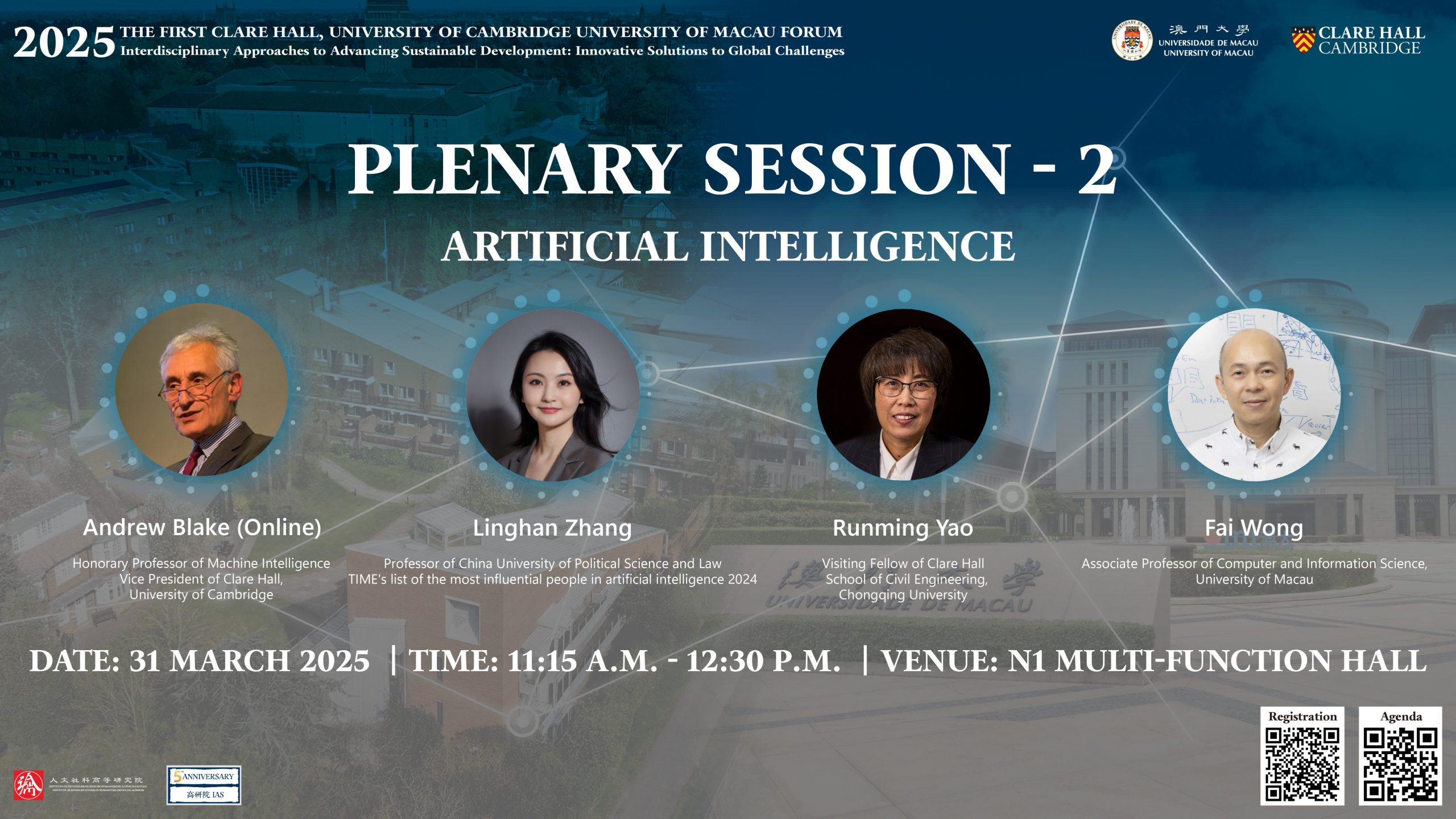Event Update:【IAS】UM Distinguished Visiting Scholar Lecture – “The Emergence, Development, and Contemporary Direction of the New Historiography Movement in China” by Professor Nianqun Yang (5 June 2025; 11:00 – 13:00)
jaeyang Yang Jia2025-06-05T00:00:10+08:00
| The IAS promotional video has been launched! We cordially invite you to watch and help spread the word! | ||
|
English |
|
中文 |
        |
||
- 主題:中國新史學運動的興起、演變及其當代走向
- 講者:楊念群教授(中國人民大學清史研究所教授、教育部長江學者特聘教授)
- 主持人:王笛教授(澳門大學高研院副院長、人文學院歷史系講座教授)
- 語言:中文
- 日期:2025年6月5日(星期四)
- 時間:11:00 – 13:00【更新】
- 地點:大學展館 – B層演講廳(E1 – B1002)及線上Teams會議【更新】
- Teams會議:ID: 474 955 424 131 8(密碼: go6RR95x)【更新】
- 主辦單位:澳門大學人文社科高等研究院
- 報名鏈接:https://go.um.edu.mo/bsd9t9us
講座摘要:
本次講座把中國「新史學」運動的興起劃分成三個階段進行概要分析,「新史學」的演變與近代中西衝突下形成的時代主題密切相關,往往是對現實政治議題的回應。有關「唯物史觀」「現代化進程」與「社會制度變革」的研究分別與「新史學」三個階段的關注主題相互對應。以詮釋「階級鬥爭」為歷史發展動力的「唯物史觀」是建立「革命史敘事」的理論基礎;「現代化敘事」的盛行是中國改革開放的時代要求所致,對基層社會運行機制的探討,與及「後現代」「後殖民」方法的引進和借用,是重估中國傳統文化價值大背景下的產物。
講者簡介:
楊念群,中國人民大學清史研究所教授,教育部長江學者特聘教授。教育部人文社會科學重點研究基地中國人民大學清史研究中心主任。主要著作有:《儒學地域化的近代形態——三大知識群體互動的比較研究》(1997),《中層理論:東西方思想會通下的中國史研究》(2001),《雪域求法記—一個漢人喇嘛的口述史》(合編,2003),《昨日之我與今日之我—當代史學的反思與闡釋》(2005),《再造“病人”—中西醫衝突下的空間政治》(2006),《何處是江南——清朝正統觀的確立與士林精神世界的變異》(2010),《“天命”如何轉移:清朝“大一統”觀的形成與實踐》(2022年)等,主持《新史學》集刊及《新史學:多元對話》系列叢書。
我們誠邀各位教職員、學生及有興趣人士出席。有關高研院更多內容,請訪問高研院網站:https://ias.um.edu.mo/。如果您有任何疑問,請通過電子郵件的方式隨時與我們聯繫:ias.programme@um.edu.mo 。
澳門大學人文社科高等研究院 謹啓
